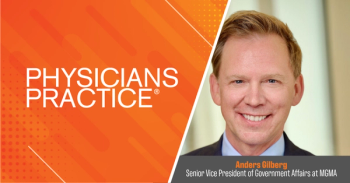The Medical Group Management Association (MGMA) is backing new federal legislation aimed at curbing step therapy requirements—insurance protocols that often delay or disrupt patients’ access to physician-prescribed treatments.
In an Oct. 22 letter to Congress, MGMA expressed its support for the Safe Step Act (H.R. 5509), a bipartisan bill that would require employer-sponsored health plans governed by the Employee Retirement Income Security Act (ERISA) to establish a clear process for exceptions to step therapy.
“Among the many onerous administrative processes in today’s health care environment, prior authorization remains one of the most burdensome for both practices and patients,” wrote Anders M. Gilberg, MGMA’s senior vice president of government affairs. “Step therapy … often delays or disrupts necessary treatment, undermines clinical decision-making, and can result in worsened health outcomes.”
What the Safe Step Act would do
- Require an exceptions process for any medication step-therapy protocol in ERISA-governed health plans, ensuring that patients can access prescribed treatments when medically necessary.
- Establish clear timelines for insurers to review and respond to exception requests to prevent treatment delays.
- Direct the U.S. Department of Labor to issue implementing regulations within six months of enactment to ensure consistent compliance.
- Mandate annual public reporting to Congress on the number of exception requests, denials, appeals, and outcomes by specialty or condition.
- Increase transparency and oversight in employer health plans that currently face fewer federal standards than Medicare Advantage plans.
Supporters, including the Medical Group Management Association, say these changes would reduce administrative burden for medical practices and speed up access to appropriate care for patients.
Learn more about the full text of the legislation at Congress.gov.
The letter, addressed to Reps. Lucy McBath (D-Ga.), Rick Allen (R-Ga.), Mariannette Miller-Meeks, MD (R-Iowa), Raul Ruiz, MD (D-Calif.), and Bob Onder, MD (R-Mo.), applauds lawmakers for reintroducing the bill.
MGMA said the legislation would help standardize how exceptions are handled in ERISA-governed health plans—where, unlike in Medicare Advantage, federal oversight is limited. The bill would direct the U.S. Department of Labor to issue regulations within six months of enactment and require annual public reports to Congress on exception requests, denials, appeals, and trends by specialty or condition.
Step therapy and the burden of prior authorization
Step therapy requires patients to “fail first” on lower-cost, insurer-preferred drugs before insurers approve coverage for the medication their physician prescribes. MGMA and other advocacy groups say such requirements can compromise patient outcomes—especially for those with chronic or complex conditions.
This effort is part of a broader fight against prior authorization burdens, which MGMA members consistently rank as the top regulatory challenge facing medical groups. Despite a 2018 industry consensus statement between MGMA, the American Medical Association, and major insurers to streamline the process, physicians say little progress has been made.
The 2025 Physicians Practice Top Challenges survey found prior authorization as a leading cause of clinician burnout and patient frustration. Meanwhile, Medical Economics reported that even as insurers pledge reforms, paperwork and delays persist—particularly for smaller, independent practices that lack the staff to navigate constant denials and resubmissions.
Implications for medical practices
If enacted, the Safe Step Act could ease one of the more complex components of prior authorization for practices—especially those managing patients with autoimmune diseases, cancer, or mental health conditions. Reduced administrative complexity would also help smaller practices reclaim staff time and resources currently spent on appeals.
Physician groups have long argued that administrative simplification is essential for sustaining independent practice viability. MGMA said it stands ready to work with lawmakers to advance the bill and “ensure swift passage of this important legislation.”
Gilberg discussed the groups legislative priorities aimed at alleviating such administrative burden during an interview at the MGMA Leaders Conference 2025.







